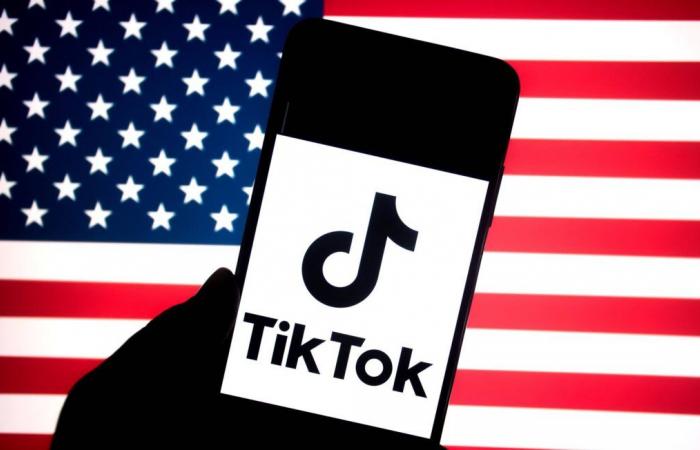Its fate seems sealed… A comfortable majority of the judges of the American Supreme Court showed themselves on Friday willing to allow the entry into force of a law threatening an imminent ban on the very popular social network TikTok, if its Chinese parent company refuses to sell it.
In the midst of a strategic confrontation between the United States and China, the American Congress adopted this law in April by a large bipartisan majority, bringing together elected Democrats and Republicans. It aims to prevent the risks of espionage and manipulation by the Chinese authorities of TikTok users, which claims 170 million in the United States.
January 19 deadline
The law, immediately promulgated by President Joe Biden, sets a deadline of January 19 for the parent company of the social network, ByteDance, to transfer the application to another owner. TikTok and ByteDance, but also organizations defending freedom of expression, claim that it contravenes the First Amendment of the American Constitution guaranteeing this freedom.
Supporters of the law “are concerned that the ideas that appear on TikTok could in the future, in some way, manipulate Americans, convince them to think what they should not think,” argued the the social network’s lawyer, Noel Francisco. “However, this conception is in conflict with the First Amendment,” he said, criticizing legislators for not having considered less radical “alternative” solutions.
National security issues
But several judges of the Court with a conservative majority objected to the imperatives of national security. “Are we supposed to ignore the fact that the ultimate owner is under obligation to perform intelligence work for the Chinese government? “, asked the president of the venerable institution, John Roberts.
“Just in terms of data collection, this represents a huge concern for the future of the country,” also underlined another conservative judge, Brett Kavanaugh.
“We know that the People’s Republic of China has a voracious appetite to get its hands on all possible information regarding Americans,” added Biden administration legal advisor Elizabeth Prelogar. “There is harm to the sovereignty of the United States if our foreign adversary can massively collect this data on nearly 170 million Americans,” she insisted.
Support Donald Trump
The social network has repeatedly denied having transmitted information to the Chinese government and assured that it would refuse any request in this regard. He is demanding from the Court at least a suspension of the entry into force of the law.
The company also knows it can count on the sympathy of President-elect Donald Trump, who will take office on January 20 and has confided his “weakness” for TikTok. He therefore asked the Court to suspend the law to give him time, once in the White House, to “seek a negotiated outcome that would avoid a nationwide shutdown of TikTok.”
However, Donald Trump himself tried to ban TikTok in the summer of 2020, during his first term, through decrees which were unsuccessful. He has since changed his mind, calling on voters attached to the service to vote for him. The Republican sees TikTok as an alternative to Facebook and Instagram, Meta’s two platforms, which had temporarily excluded him after his support for the participants in the assault on the Capitol on January 6, 2021.
Potential buyers
One of the solutions envisaged in the event of the law being maintained would be for ByteDance to resell its shares to non-Chinese investors, a possibility that the company has constantly rejected.
But several potential buyers have come forward, notably American billionaire Frank McCourt, who campaigns for safer social networks through his organization Liberty Project. “We have presented a proposal to ByteDance” to buy TikTok in the United States, Frank McCourt announced Thursday in a press release.






